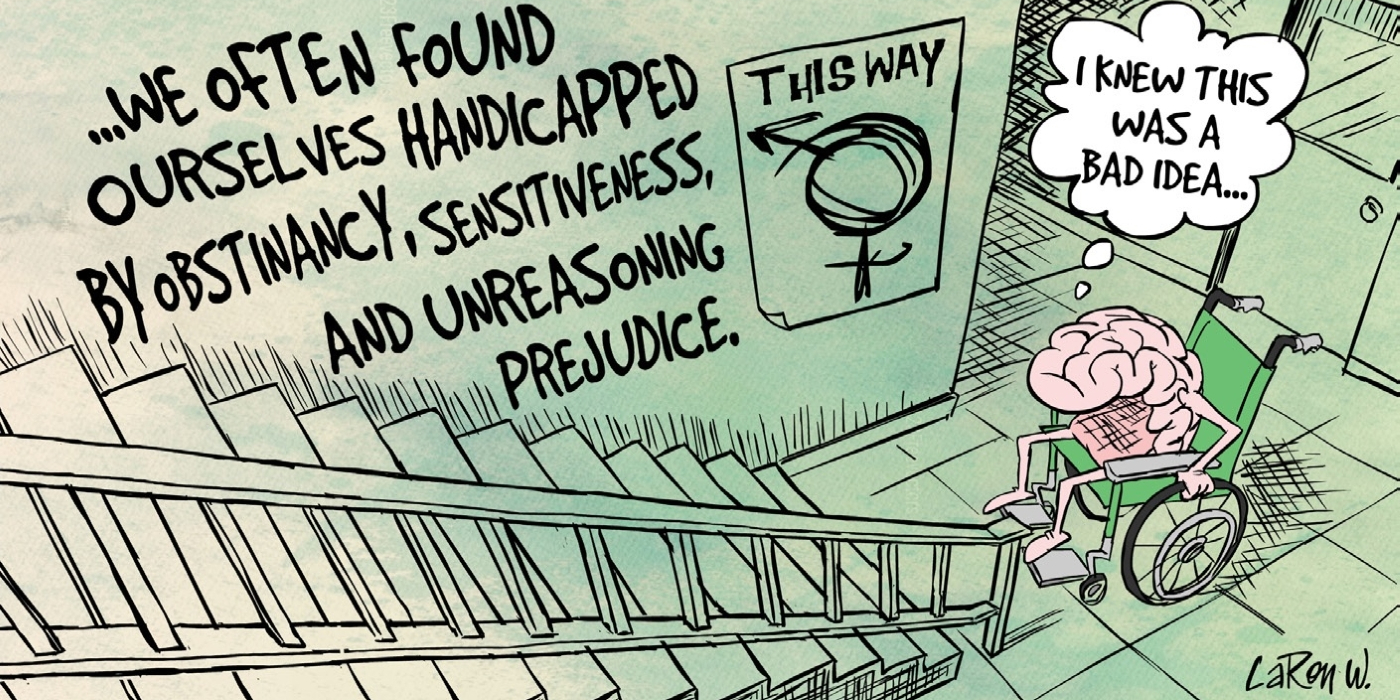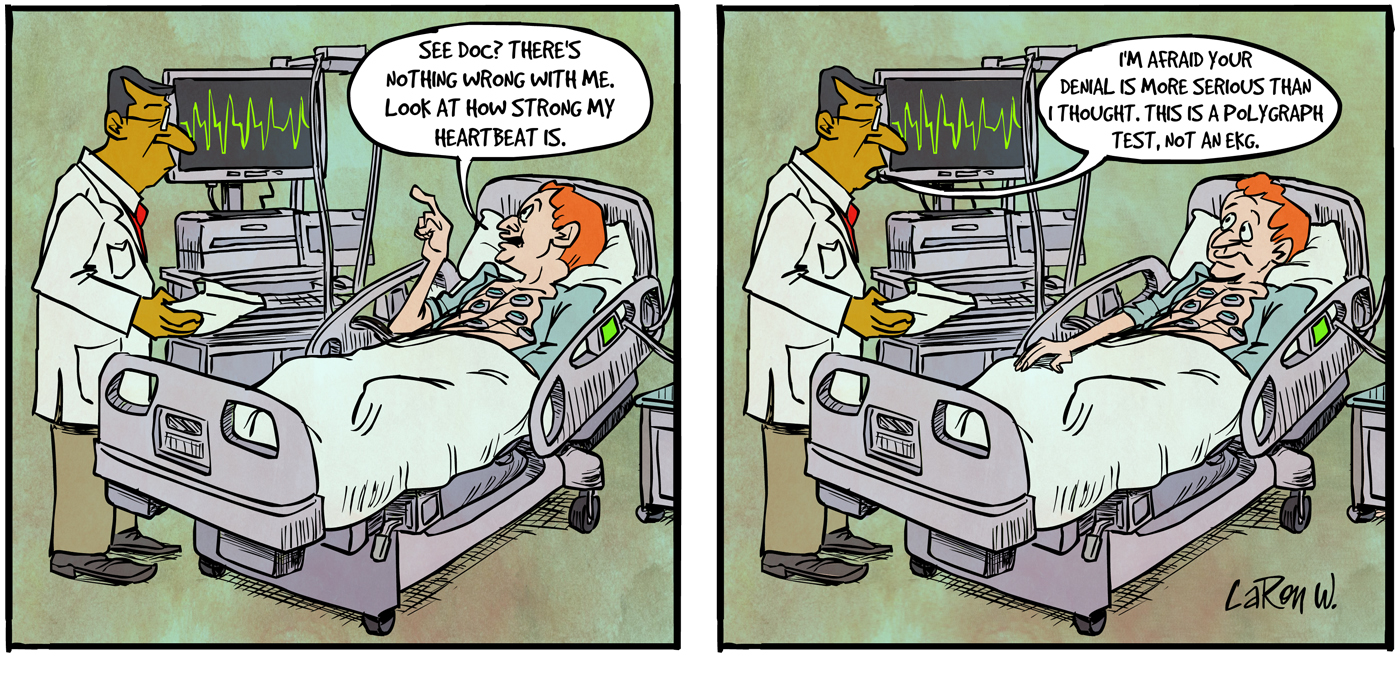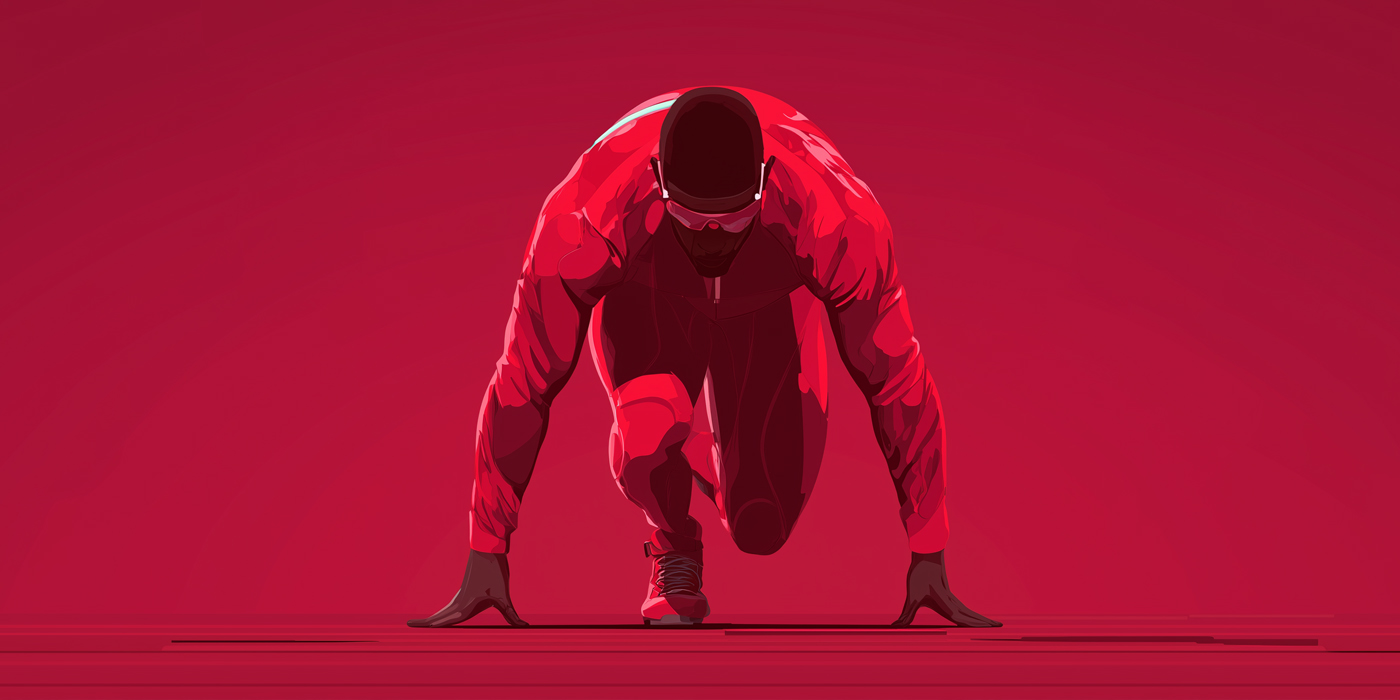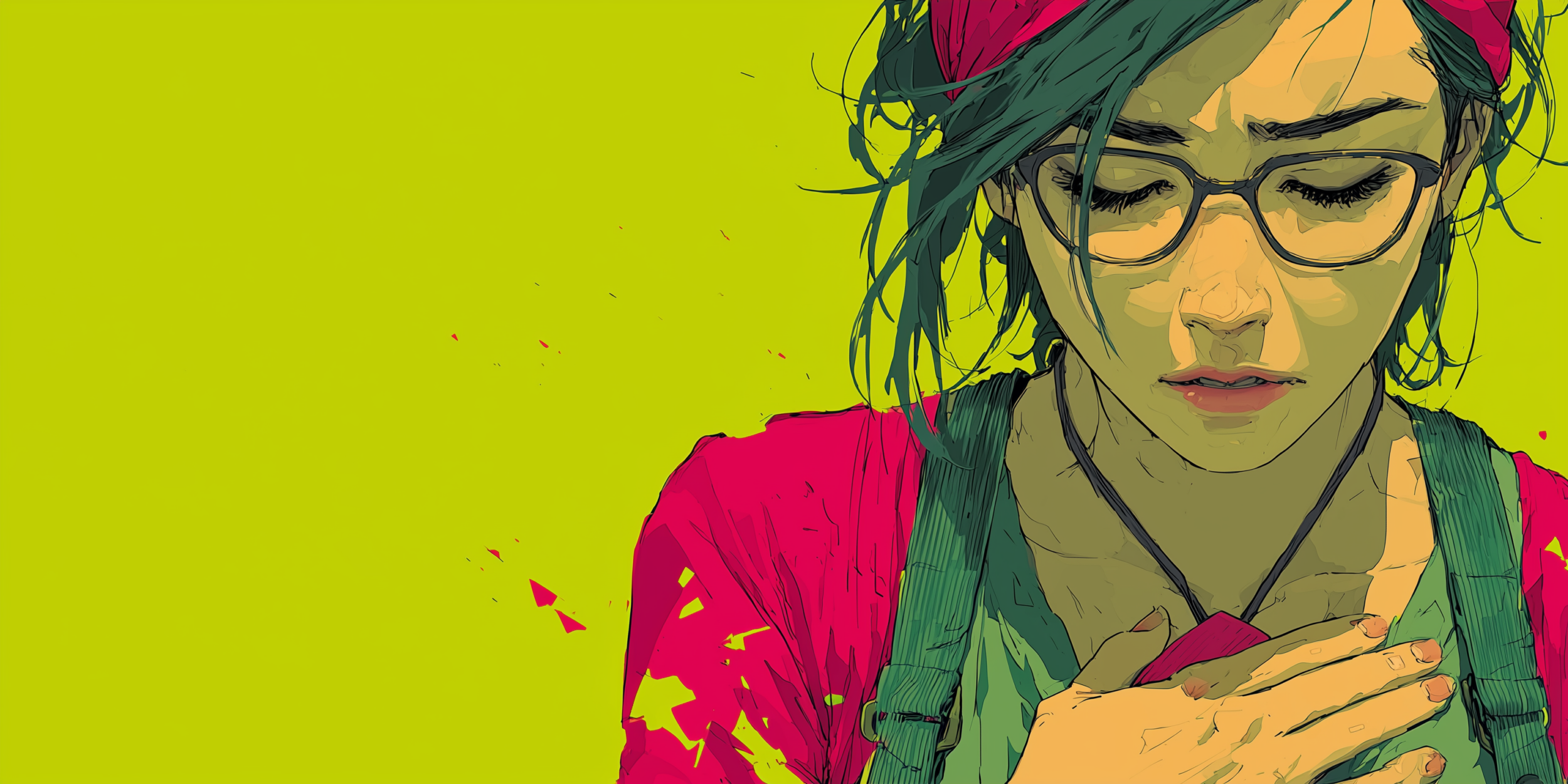
The Cambridge English Dictionary defines “Prejudice” as follows: an unfair and unreasonable opinion or feeling, especially when formed without enough thought or knowledge.
Perhaps one of the most lethal parts of my disease is the compulsion to find where I am different from everybody else: “Everybody’s married and I’m not,” “Everybody’s male and I’m not,” “Everybody acted out in that way and I didn’t.” I think that one of the reasons this part of my disease is so dangerous is because I actually believe these voices in my head, I give them strength and act upon them, even if they’re not based in reality and are simply prejudiced.
In my first meeting of Sexaholics Anonymous that same voice spoke in my head and immediately began talking frantically. The whole meeting I focused on how different I was, how I won’t be able to recover like all these others. Everybody seemed to be better than I was, different than me. They could but I couldn’t. This prejudiced voice followed me through my first months in SA and prevented me from being a part of, making real connections and from starting to work the Steps. I was stuck! On the other hand I knew that I had a fatal disease and I saw the end was in sight. I really saw it. I asked my Higher Power nightly to take me after another night of acting out with the ensuing pain and suffering that wouldn’t end. I was broken from the inside. I wanted help, but I wasn’t able to lose the prejudice and see how we were the same. I wasn’t able to see that if it worked for them it could work for me.
In my first conference of SA I felt that familiar feeling of alienation. My head told me that all these fellows who were sober were older men or married and that I had no place here. When people share about their sexual histories I thought: “I am not a real sexaholic. I didn’t do everything they did.” I thought that maybe I had to go and suffer more before I could be a part of. I felt there was no hope for my recovery. But inside there was a small voice that cried out and begged, a voice that I could barely hear. The voice insisted: “Maybe I do.” I talked to an old-timer who flew into Israel for a convention and I asked her: “Do you think there is hope for my recovery? Do you think I belong in SA?” She looked at me and asked: “Did you suffer enough?” I thought about it for a few seconds and with tears in my eyes I replied: “Yes! I don’t want one more day of this suffering.” She said: “That’s all you need. Welcome home! Who knows maybe your recovery will lead the way for many young women that will come after you.”
This conference and the conversation with this fellow sexaholic shook the foundations of my loneliness and broke apart some of my prejudice. I began to see how I was like all these other people. How much I related to the pain they described, the way their disease spiraled out of control and sucked the life out of everything. I started listening to shares from friends and I heard me in the shares, as if someone was describing what was going on in my own head. I wanted to cry out: “My name is _____ and I am a sexaholic.”
One of the most important things that my sponsor has taught me was to pass on the spiritual principles that have saved many lives. I was told that spiritual principles are not picky, they’re not prejudiced. They don’t care what background I have, what gender I am, or what my job is. A spiritual principle works if you work it, so work it, you’re worth it.
I think that prejudice is a deep part of my disease that wants to prevent me from recovering by causing me to be lonely and different: “terminally unique.” Just for today I can hear these voices in my head, tell them “Thank you for sharing” and not believe them. I don’t have to fight, just to accept their presence there and to ask for help from my HP.
Odeya R., Israel






